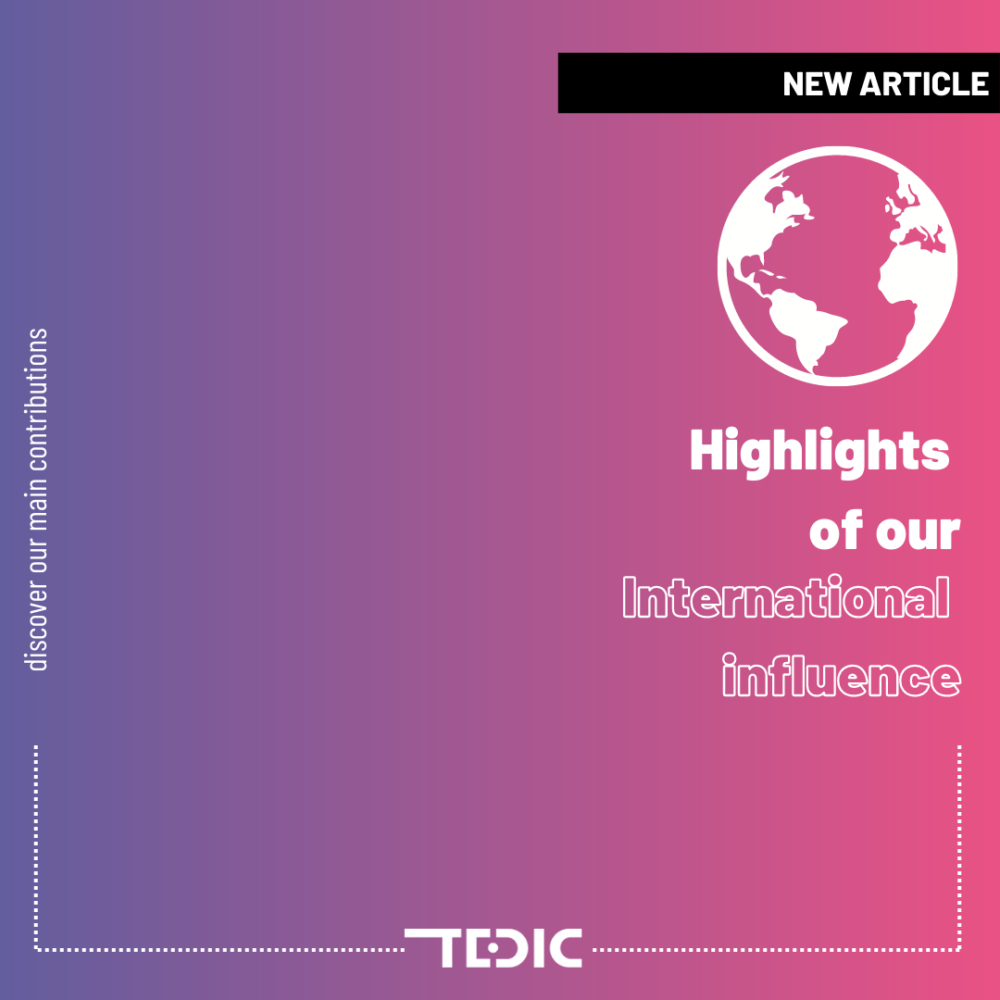
Within our international advocacy actions, through the sending of joint recommendations to the United Nations and other multilateral organisations, we have co-produced a series of public policy recommendations to insert our research and collected data into an international agenda that seeks to reconcile the progress of digitisation with a human rights perspective.
C20/G20
The Group of Twenty (G20) is the main forum for international economic cooperation. It plays an important role in shaping and strengthening the global architecture and governance of global economic issues.
In this sense, in preparation for the annual meeting of members in India this year, the C20 India 2023 was set up. This space offers a platform for civil society organisations to express their voice before G20 world leaders and amplify the sector’s main concerns on various topics.
Thus, and within our efforts to shed light on the export of surveillance technologies in the Triple Border area, together with Data Privacy Brasil, we developed a public policy recommendation document for the C20 working group of “Technology, security and transparency”. This recommendation centralises three years of work on monitoring the integration of law enforcement and intelligence databases and the deployment of facial recognition technologies and drones at various points along the border. In the document, we urge Member States to prepare human rights and data protection impact assessments before implementing these systems. We also show that most technologies are exported from G20 member countries and organisations and later deployed in other countries with different realities and legal safeguards.
You can find the research that supported our recommendations here.
Global Digital Compact
Following the political declaration adopted on the occasion of the 75th anniversary of the United Nations in September 2020, the Secretary-General published the Our Common Agenda report in 2021. Such an agenda proposes a Global Digital Pact to be agreed upon at the Summit Future in 2024 through the participation of various actors: governments, the United Nations system, the private sector (including technology companies), civil society, grassroots organisations, academia and individuals.
The design of the Global Digital Compact implies a series of parallel processes, one of them being the sending of recommendations built between various actors that address one or more of the seven strategic issues identified in the Our Common Agenda document:
- Connect all people to the internet, including all schools
- Avoid internet fragmentation
- Protect data
- Apply human rights online
- Introduce accountability criteria for discrimination and misleading content
- Promote regulation of artificial intelligence
- Digital commons as a global public good
From TEDIC, and within the framework of our articulation at the regional and international level with various groups, we co-elaborate four policy recommendations to make visible issues of Paraguay and the region.
ALSUR
From ALSUR, a consortium of eleven organisations from civil society and academia that works on issues of human rights and technology, and of which we are a co-founding organisation, we contributed to the chapter on “Connect everyone to the Internet, including all schools”. In the document,we point out to the misuse of the Universal Services Funds in our country for the acquisition of surveillance technologies and not for the investment of connectivity in remote areas. We also mention the need to adopt public digitisation policies in schools that do not end up strengthening the dominance of global technology companies but also to bet on developing open source capacities amongs students.
The complete document is here.
Consultation of the Americas
Within the framework of our participation in the “Consultations of the Americas” of the Global Digital Pact carried out in Mexico City, we contributed to developing a document that focused exclusively on the theme of connectivity.
We used this opportunity to bring our inclusive and gender-based perspective to the connectivity debate. We warned about the need for public connectivity strategies to recognise the existing gaps in access to technologies determined by issues such as gender and the urban-rural digital divide. We also warned in this document about the need to shield the Universal Services Funds from initiatives other than connectivity and that the States respect the nature and purpose for which such funds were created.
The complete document is here.
Open Data Charter
We participated in a meeting to map arguments at the intersection of open data and the right to privacy, led by the Open Data Charter. In this sense, we advocate for the need to understand the right to access to information and the protection of personal data as two complementary rights that should not be understood as antagonistic and the need to continue advocating for greater transparency in our countries, as well as the need for a comprehensive personal data protection law in countries like Paraguay.
The complete document is here.
Targeted surveillance
Finally, we signed a recommendation document led by the organisations’ Access Now, International Amnesty, Article 19 (Mexico and Central America) and Privacy International. This document proposes to urgently establish a prohibition on the sale, transfer, export, maintenance and use of spyware until an adequate system to safeguard human rights is established. It also urges companies that develop this technology (and their investors) to more proactively develop due diligence studies on human rights in all its global operations.
The complete document is here.
Next steps
From TEDIC, we will continue to accompany the development of various international agendas, aiming to insert our work and research on technology and human rights issues. This is to continue making our territory’s realities visible and contributing to a global debate among multiple stakeholders on the future of technology in our society.
